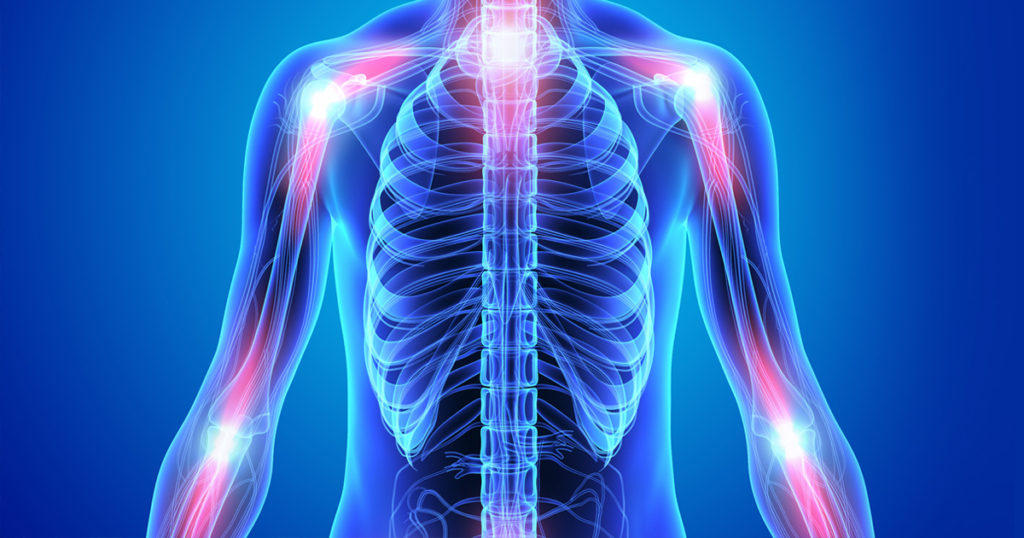Overview
Many people may ignore that inflammation is a phenomenon that occurs within the human body, which helps to combat diseases, viruses, and infections. Inflammation acts like a warning sign to the immune system to react against affected tissues.
However, an excess of inflammation can cause harm to the human body. There are two types of inflammation, which we will elaborate on in this article. Fortunately, inflammation is curable, and one effective way to do it is using dhanwantharam thailam.
Types of inflammation
There are two primary types of inflammation which are: acute and chronic.
1. Acute Inflammation
Acute inflammation, which is short-lasting, usually goes away within a few days. The most common causes of acute inflammation are injuries, sprained muscles, and sore throat.
A few signs of acute inflammation are:
- Redness
- Pain
- Swelling
- Heat
- Loss of function
It is important to note that a person will not witness all the above symptoms together during inflammation. These symptoms happen because the immune system is trying to heal the affected part of the body.
2. Chronic Inflammation
On the other hand, chronic inflammation is the complete contrary of acute inflammation. First and foremost, chronic inflammation is long-lived. Chronic inflammation can last for months and, in the worst cases, for years.
Chronic inflammation is primarily related to other diseases such as:
- Cancer
- Diabetes
- Asthma
- Alzheimer
- Heart disease
- Arthritis
- Allergies
Unlike acute inflammation, the symptoms of chronic inflammation vary. It is principally because the symptoms depend on what disease a person is suffering from.
Causes of inflammation
Inflammation occurs when there is a reaction to the immune system of a person, especially when a physical factor causes it. However, inflammation can also occur from infection. Find below what causes acute and chronic inflammation.
Causes of acute inflammation:
- Exposure to dust or a chemical substance
- An injury
- An infection
- Swelling
- Chronic bronchitis
- Appendicitis
- Ingrown toenail
- Cold or flu
- Physical trauma/Injury
Causes of chronic inflammation:
- Hypersensitivity or Sensitivity (Allergy)
- Exposure to chemical substances for a prolonged period
- Autoimmune conditions
- Autoinflammatory disease
- Asthma
- Chronic peptic ulcer
- Tuberculosis
- Rheumatoid arthritis
- Periodontitis
- Ulcerative colitis
- Crohn’s disease
- Sinusitis
- Active hepatitis
Common risk factors that can lead to chronic inflammation include:
- Overweight
- Overeating, especially spicy food
- Smoking (Nicotine)
- Alcohol consumption
- Consuming excessive fatty foods
- Low sexual hormones
- Age
- Insomnia
- Sleep deprivation
- Acute Stress
- Depression
- Anxiety
- Cancers
- Rheumatoid arthritis
- Atherosclerosis
- Periodontitis
Symptoms of Inflammation
Symptoms of acute inflammation include:
- Pain
- Redness
- Swelling
Symptoms of chronic inflammation include:
- Extreme fatigue
- Rashes
- Mouth sores
- Fever
- Abdominal pain
- Chest pain
Treatment for acute inflammation
Acute inflammation usually takes a few days to disappear; hence treatment is generally unnecessary for this inflammation type. However, in some cases, immediate treatment is mandatory, such as,
Nonsteroidal anti-inflammatory drugs
Nonsteroidal anti-inflammatory drugs include ibuprofen or aspirin. However, NSAIDs will not fully heal acute inflammation. Instead, it will help to alleviate any potential pain, swelling, or other symptoms.
Pain relief drugs
Doctors will provide paracetamol, Tylenol, dhanwantharam thailam, or acetaminophen to alleviate pain due to acute inflammation.
Corticosteroids
Corticosteroids are a type of steroid hormone and cortisol. Doctors prescribe them in different forms, such as ointment, inhalers, pills, or injections.
Cortisol can be of great help for the below conditions and prevent inflammation.
- Arthritis
- Temporal arteritis
- Dermatitis
- Hepatitis
- Inflammatory bowel disease (IBD)
- Lupus
- Allergy
- Asthma
NOTE: Using corticosteroids for a prolonged period can be incredibly harmful.
Treatment for Chronic inflammation
Chronic inflammation can cause severe damage to the human body if treatment is not provided on time. The treatment for chronic inflammation is almost similar to acute inflammation treatment.
Nonsteroidal anti-inflammatory drugs
Nonsteroidal anti-inflammatory drugs to treat chronic inflammation include Advil and Aleve; it will reduce pain due to inflammation quickly. However, it will not fully heal a chronic inflammation.
Steroids
Steroids come from corticosteroids, or we can say cortisol. Steroids will help to alleviate pain and also suppress attacks on the immunity system.
NOTE: Excessive consumption of corticosteroids can lead to harmful health conditions. Therefore it is advisable to ask your doctor’s advice before consuming it.
Supplements
Some various supplements and spices are incredibly helpful in reducing inflammation, including:
- Fish oil
- Lipoic acid
- Curcumin
- Ginger
- Garlic
- Dhanwantharam thailam
- Cayenne
Conclusion
Conclusively, it can take a few days or years for an inflammation to disappear from the human body entirely. However, it is always advisable to seek professional help if you observe any of the above symptoms. It is highly crucial to receive adequate treatment before it’s too late or if it results in severe damage in the long term.

